Launching the #CPUOverload Project: Testing Every x86 Desktop Processor since 2010
by Dr. Ian Cutress on July 20, 2020 1:30 PM ESTGaming Tests: Chernobylite
Despite the advent of recent TV shows like Chernobyl, recreating the situation revolving around the 1986 Chernobyl nuclear disaster, the concept of nuclear fallout and the town of Pripyat have been popular settings for a number of games – mostly first person shooters. Chernobylite is an indie title that plays on a science-fiction survival horror experience and uses a 3D-scanned recreation of the real Chernobyl Exclusion Zone. It involves challenging combat, a mix of free exploration with crafting and non-linear story telling. While still in early access, it is already picking up plenty of awards.
I picked up Chernobylite while still in early access, and was impressed by its ingame benchmark, showcasing complex building structure with plenty of trees and structures where aliasing becomes important. The in-game benchmark is an on-rails experience through the scenery, covering both indoor and outdoor scenes – it ends up being very CPU limited in the way it is designed. We have taken an offline version of Chernobylite to use in our tests, and we are testing the following settings combinations:
- 360p Low
- 1440p Low,
- 4K Low
- 1080p Max
For automation purposes, the game has no flags to initiate benchmark mode. We delete the movies from the install directory to speed up entering the game, and use timers and keypresses to start the benchmark mode. The game puts out a benchmark results file, however this only shows average frame rates, not frame times. In-game settings are controlled by copying pre-arranged .ini files into the relevant location. We do as many runs within 10 minutes per resolution/setting combination, and then take averages.
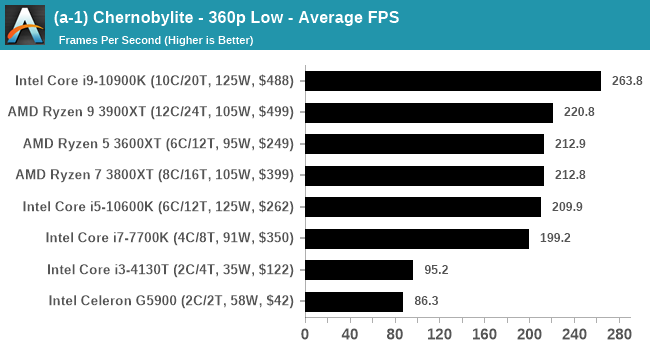
| AnandTech | IGP | Low | Medium | High |
| Average FPS |  |
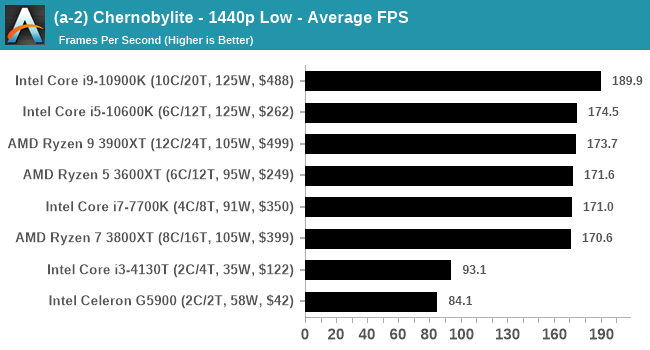 |
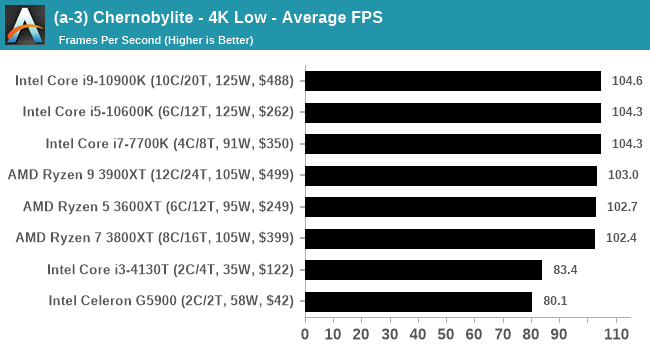 |
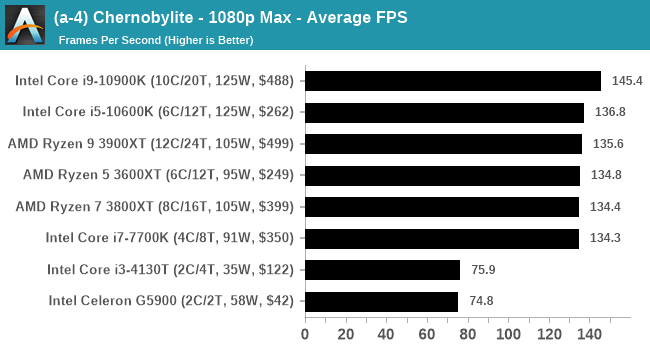 |
All of our benchmark results can also be found in our benchmark engine, Bench.


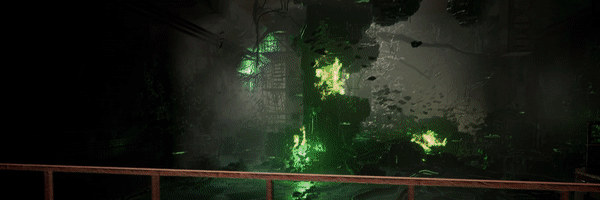








110 Comments
View All Comments
jebo - Wednesday, July 22, 2020 - link
Can we get a rundown of the underlying systems being used? RAM etc.Thanks for this!
GeoffreyA - Wednesday, July 22, 2020 - link
Astounding work, Ian! All the best on the project.Kdam - Wednesday, July 22, 2020 - link
Thanks for the effort. I was wondering if it was possible to include a cam benchmark (mastercam or other)nathanddrews - Thursday, July 23, 2020 - link
Would it be possible to add a sort or filter to see 95th percentile frame rates only? A filter by quality level? It would make reading the data much easier. QOLOldTech920 - Thursday, July 23, 2020 - link
Your CPU table (on page 2) is weirdly incomplete for Nehalem and Westmere CPUs. Specifically, it's missing the whole 1st generation Nehalem HEDT parts (aka "Bloomfield" 45 nm chips using the X58 chipset), such as i7-920, i7-940, through i7-975 EE . Combined with a recent GPU, these are still amazingly viable 4-core/8-thread CPUs.Robberbaron12 - Monday, July 27, 2020 - link
THere is no support for X58 and skt 1366 anymore in the latest version of Win 10, so its not possible to install the test suite. I know it still works if you had a 3-4 year old version on Win 10 but you can to clean install now, and I'm pretty sure skt 1156 is going the same way.Oxford Guy - Tuesday, July 28, 2020 - link
Windows 10 is a disgrace.juraj2 - Friday, July 24, 2020 - link
That is a great project. I would like to see as performance per watt has been changing during the years. Also, current benchmarks show for example CPU with 105W, but that is completely false because during the test CPU was consuming much more power. This makes results confusing and mostly in favour of Intel. Intel is cheating a lot in this regard.Oxford Guy - Tuesday, July 28, 2020 - link
Real power consumption is definitely more interesting than the "let's pretend" TDP numbers.alpha754293 - Monday, July 27, 2020 - link
This is fantastic!!!I was the person who asked for the OpenSSL benchmark because I was moving a lot of data around and needed SHA256 to ensure the data transfers completed successfully.
Thank you for putting this together.